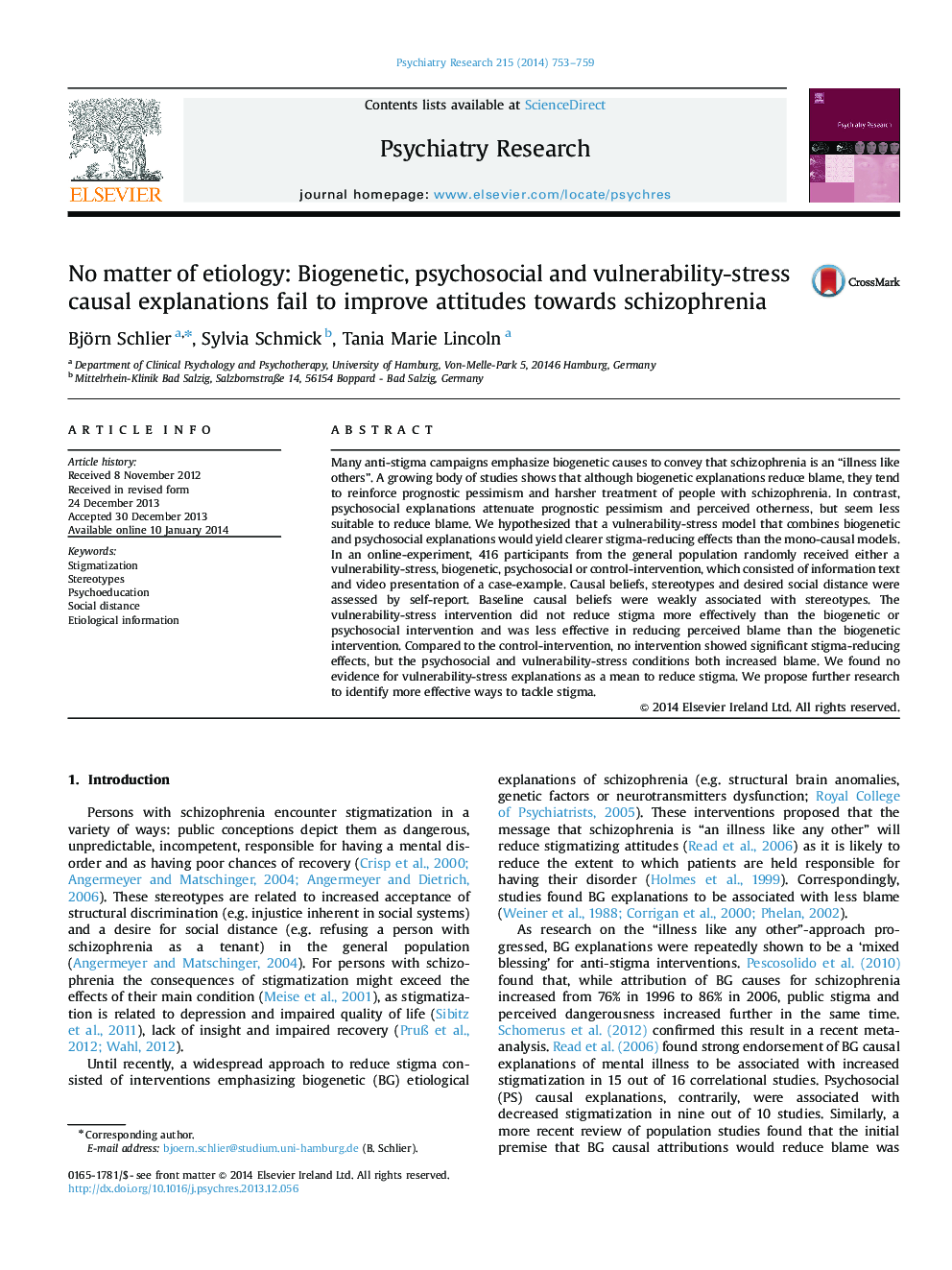| Article ID | Journal | Published Year | Pages | File Type |
|---|---|---|---|---|
| 10303918 | Psychiatry Research | 2014 | 7 Pages |
Abstract
Many anti-stigma campaigns emphasize biogenetic causes to convey that schizophrenia is an “illness like others”. A growing body of studies shows that although biogenetic explanations reduce blame, they tend to reinforce prognostic pessimism and harsher treatment of people with schizophrenia. In contrast, psychosocial explanations attenuate prognostic pessimism and perceived otherness, but seem less suitable to reduce blame. We hypothesized that a vulnerability-stress model that combines biogenetic and psychosocial explanations would yield clearer stigma-reducing effects than the mono-causal models. In an online-experiment, 416 participants from the general population randomly received either a vulnerability-stress, biogenetic, psychosocial or control-intervention, which consisted of information text and video presentation of a case-example. Causal beliefs, stereotypes and desired social distance were assessed by self-report. Baseline causal beliefs were weakly associated with stereotypes. The vulnerability-stress intervention did not reduce stigma more effectively than the biogenetic or psychosocial intervention and was less effective in reducing perceived blame than the biogenetic intervention. Compared to the control-intervention, no intervention showed significant stigma-reducing effects, but the psychosocial and vulnerability-stress conditions both increased blame. We found no evidence for vulnerability-stress explanations as a mean to reduce stigma. We propose further research to identify more effective ways to tackle stigma.
Related Topics
Life Sciences
Neuroscience
Biological Psychiatry
Authors
Björn Schlier, Sylvia Schmick, Tania Marie Lincoln,
